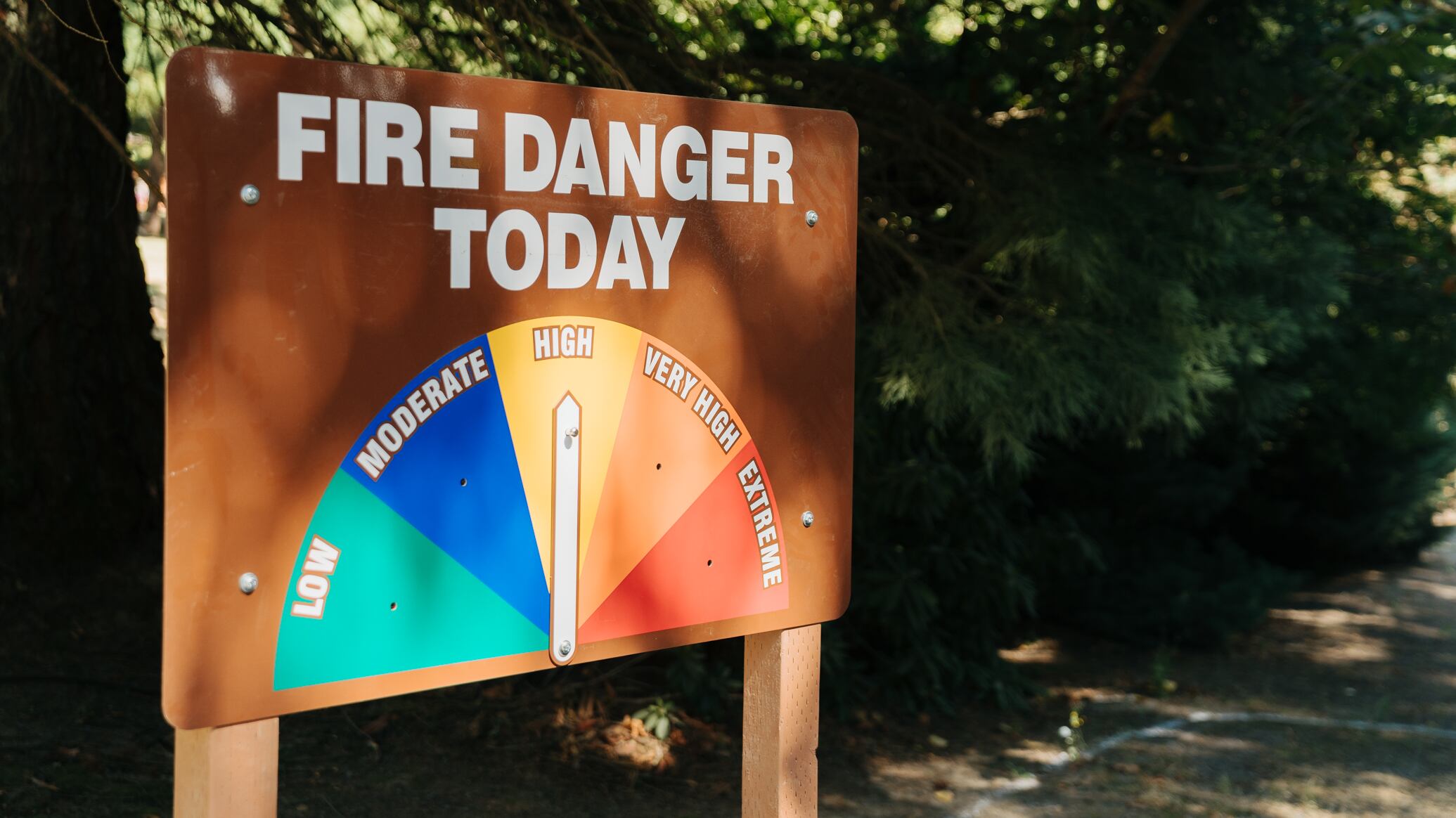The city commissioners overseeing the city of Portland’s parks and fire bureaus are exploring placing an $800 million joint fire and parks bond on the November 2024 ballot. If passed, the property tax bond would fund repairs of existing facilities, among other capital projects.
Commissioners Rene Gonzalez and Dan Ryan, who oversee Portland Fire & Rescue and Portland Parks & Recreation, respectively, say a bond to support the two bureaus is critical—and a response to threats to the civic landscape fueled by climate change.
“There’s only upsides to pairing these, because they really do go together. If we’re talking about preservation of our natural lands as our climate continues to get warmer, we have to make sure we have the capacity to respond if there’s a wildfire,” Ryan says. “The capital needs of fire and the capital needs of parks go together.”
According to a poll commissioned by the parks bureau and conducted by FM3 Research in November, support for a Parks & Recreation bond is strengthened when the fire bureau is added to the mix.
Fifty-four percent of the 780 likely voters sampled supported a $600 million parks bond, according to the poll, which WW has obtained. Adding Fire & Rescue to a parks bond, which would increase the bond to $800 million, resulted in higher support: 62% of respondents said they’d support a joint bond funding the capital needs of both bureaus. The cost of the tax to the average property owner would be $200 annually. If the parks bureau pursued its own bond, it would cost the average property owner $149 a year.
Sixty percent of respondents said they’d also support a combined fire and parks levy, though a simple renewal of the existing parks levy polled much higher, at 70%. (The current five-year parks levy is up for renewal in 2025. If the two bureaus decided to pursue a joint levy, it would be an entirely new levy—the renewal of the current parks levy would be scrapped. The Oregonian reported last week that the parks bureau has been slow to use the levy dollars it’s collected in its first two years.)
Portland Fire & Rescue has paid its firefighters enormous amounts in recent years to work overtime shifts. Recent reports commissioned by the city show that the city has too few fire stations, aging and decrepit facilities, and too few firefighters to meet the demand of calls, an increasing number of which are low-acuity medical calls.
“We have a training facility that doesn’t have women’s changing rooms, which is outrageous,” Gonzalez says. “We have a logistics center that will crumble in a major seismic event.”
Portland Parks & Recreation is in no better shape. The bureau is facing a nearly $600 million infrastructure maintenance backlog, and bureau officials estimate that 1 in 5 of the bureau’s park assets will fail within 15 years.
Bond dollars can only be used on capital projects such as maintaining and repairing existing facilities and building new ones. Bond dollars cannot be used for operating expenses, such as firefighter and park ranger salaries.
Only last summer, a poll gauging voters’ interest in supporting a bond for the fire bureau showed it would likely die at the ballot box; right around 50% of respondents said they’d vote against it if placed on the May 2023 ballot. The November poll suggests voters’ sentiments may have changed since then.
But the ambition to go out for a parks and fire bond could be dampened by Gov. Tina Kotek’s recommendation last week that Portland enact a three-year moratorium on all new taxes, one of the recommendations that came out of Kotek’s task force aimed at curing Portland’s ills. (Portland has the second-highest total state and local tax rate in the nation.)
Asked about that proposal, Gonzalez bristled during an interview with WW last week, saying it’s unfair that Portland be forced into tax austerity while other jurisdictions—Metro and Multnomah County, specifically—carry on. (Just last week, however, city officials announced that the Portland Clean Energy Fund, a tax on retailers with high earnings, would bring in $540 million more over a five-year period than the city had projected.) Now, it’s more clear why Gonzalez had such strong feelings about a moratorium: He wants to pursue a costly bond measure for one of his bureaus.
“We cannot starve one side of government while others are really being overfunded,” says Gonzalez, who adds that his exploration of a bond measure is still preliminary. “We’ve got to find a way to balance that out. But it does create an interesting political question right now.”
Ryan says the executives at the city, county and Metro must convene to talk about “rightsizing” the current tax burden on Portlanders, which include the supportive housing services measure administered by Metro, the Preschool for All tax collected by Multnomah County, and the Portland Clean Energy Fund administered by the city.
“It’s important that we look at the current taxes that are causing the most burden and are experiencing implementation challenges, and have the humility and courage to do some amending and rightsizing,” Ryan says. “That would give us more freedom to consider these investments that Portlanders seem to want.”
Ryan says it’s unlikely a fire and parks bond would pass if nothing changes with the current tax burden: “It’s got to even out.”
